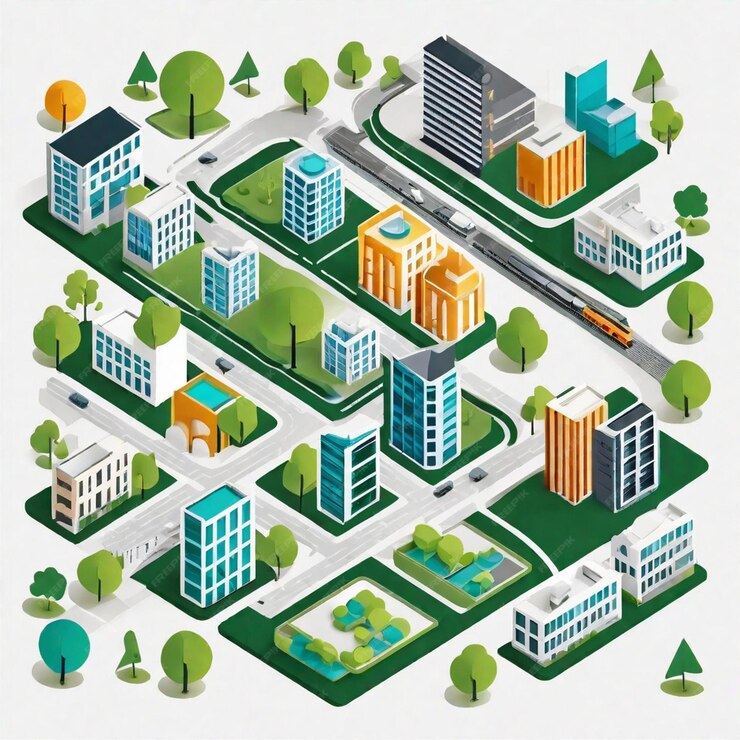In this comprehensive exploration, we delve into sustainable urban planning strategies aimed at achieving balanced growth amidst rapid urbanization. As cities expand, it’s crucial to adopt approaches prioritizing environmental preservation and residents’ well-being. Let’s explore these strategies in detail.
Smart Densification and Functional Mixity: Smart densification and functional mixity are cornerstone strategies. Smart densification optimizes land use within existing urban areas, reducing sprawl and preserving green spaces. Functional mixity creates mixed-use developments integrating residential, commercial, and recreational spaces, promoting efficient resource use and vibrant communities. Moreover, strategies such as transit-oriented development and green infrastructure integration enhance the resilience and sustainability of urban environments.
Affordable and Inclusive Housing: Affordable and inclusive housing is essential for equitable and resilient cities. Policies such as inclusionary zoning and rent control ensure access to safe, decent, and affordable housing for all residents, preventing displacement and fostering community stability. Additionally, innovative financing mechanisms and public-private partnerships can facilitate the development of affordable housing projects and promote social inclusion within urban areas.
Community Involvement: A Key Pillar Community involvement is crucial for successful urban planning. Engaging residents in decision-making processes ensures alignment with their needs and aspirations. Through participatory planning, citizens contribute local knowledge, fostering empowerment and ownership in shaping their communities. Furthermore, fostering social cohesion and building social capital through community-led initiatives and neighborhood associations strengthens the fabric of urban communities, contributing to their long-term sustainability and resilience.
Sustainable urban planning integrates environmental, social, and economic considerations. Prioritizing smart densification, affordable housing, and community involvement, cities can create inclusive, resilient, and livable environments. Collaboration across sectors is essential to address urbanization challenges and build truly sustainable cities. Additionally, continuous monitoring, evaluation, and adaptive management of urban planning initiatives ensure their effectiveness and relevance in addressing evolving urban challenges and opportunities.
